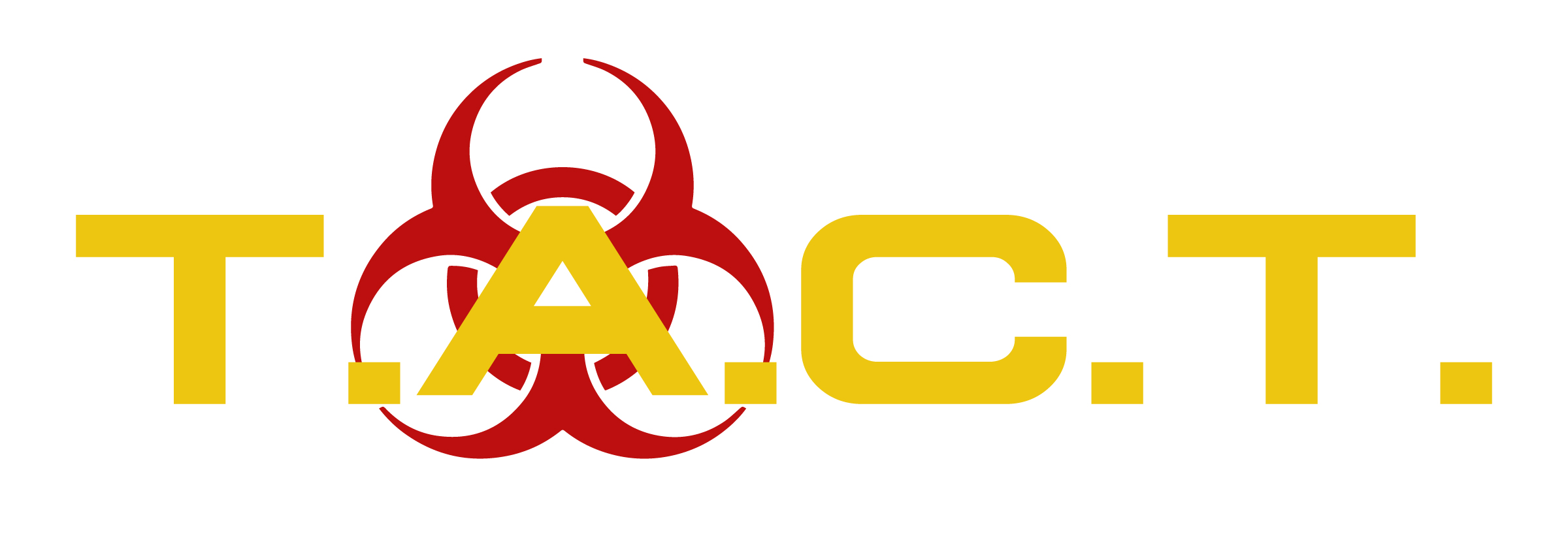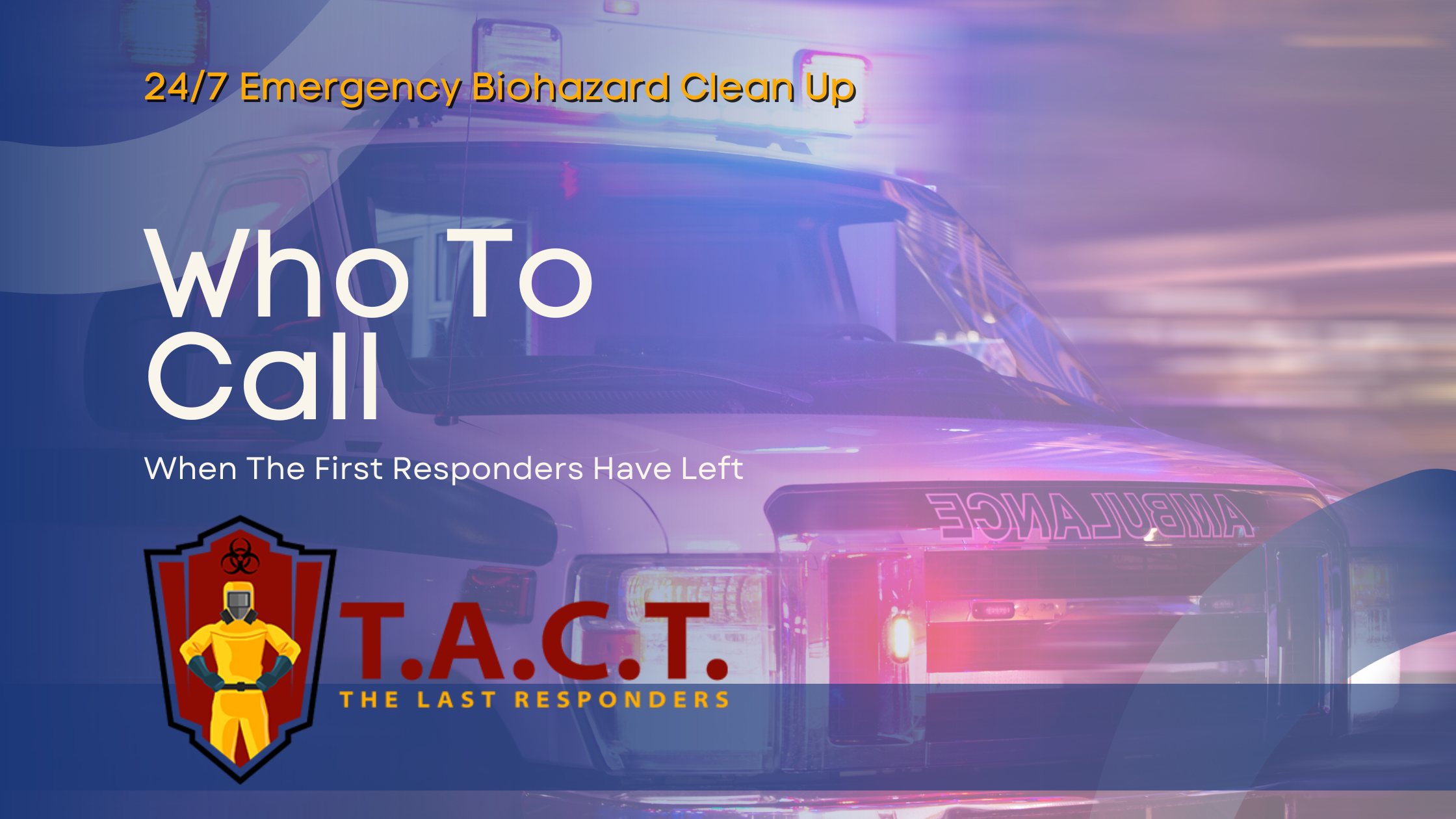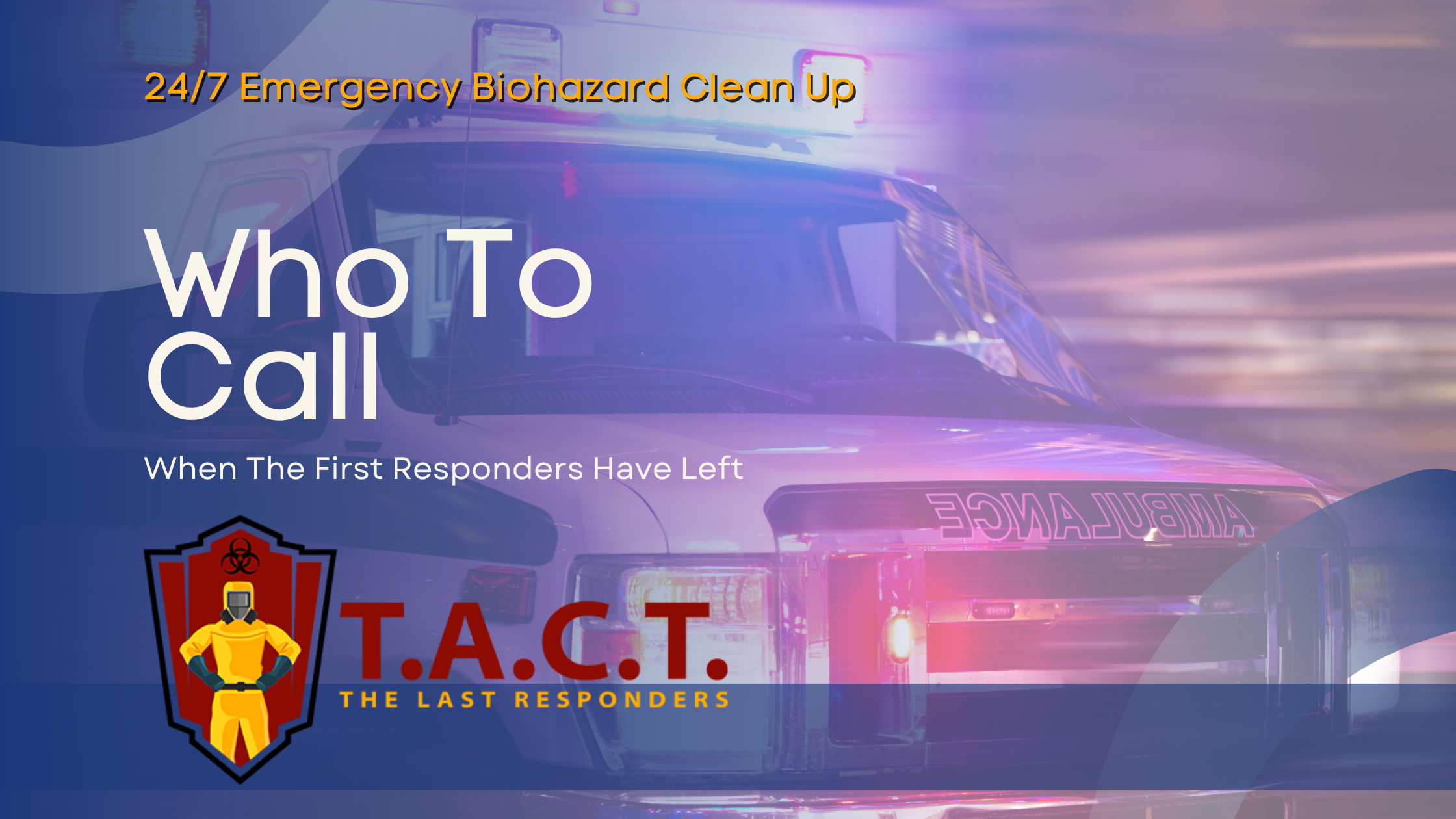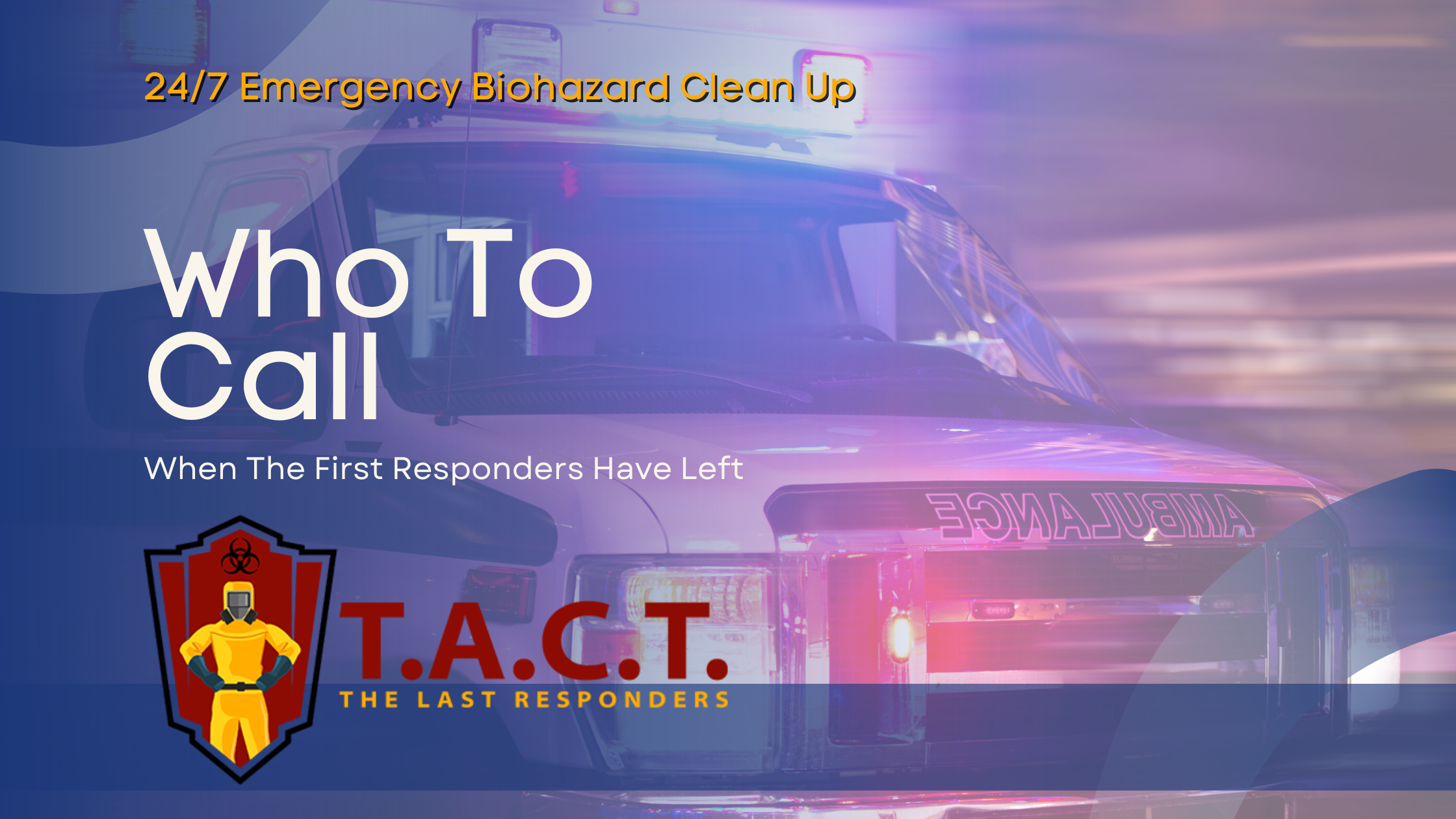Who to Call for Mold Removal | Expert Mold Remediation Tips

Who to Call to Remove Mold: Finding the Right Experts for Your Home
Mold can be a homeowner’s worst nightmare, making rooms unlivable and posing potential health risks for your family. But how do you know when to take action and, more importantly, who to call for help? This guide will walk you through everything you need to know about identifying mold problems, finding the right mold remediation specialists, and preventing issues in the future.
By the end, you'll be equipped with the knowledge you need to keep your home safe, clean, and mold-free, while understanding when it's time to bring in professionals to help.
Understanding Mold Growth
What Is Mold and How Does It Grow?
Mold is a type of fungus, and it thrives in environments with high moisture levels. It grows on organic materials like wood, drywall, and even furniture, feeding on microscopic particles such as dust and debris.
Mold is more likely to develop in areas of your home with excessive humidity or water damage, including bathrooms, basements, and around leaking windows. Stopping this silent invader early is key to maintaining a safe and healthy home.
Signs of Mold Growth
Wondering if you have a mold problem? Look out for these common signs of mold infestation:
Visible patches of mold on surfaces, appearing as black, green, or white spots.
Musty odors that linger no matter how thoroughly you clean. If you smell mold, it could be growing behind walls or under carpets.
Water damage or leaks, which often create the perfect environment for mold to grow.
Health symptoms like allergies, respiratory issues, or worsening asthma experienced by yourself or household members.
Don’t dismiss these signs. Mold spreads quickly, and delaying action could lead to bigger problems.
When to Call a Mold Remediation Specialist
4 Telltale Signs You Need Professional Help
Not all mold problems can be solved with store-bought cleaning products. Here’s when you should call in professionals immediately:
Significant mold growth that covers large areas or persists after cleaning.
Evidence of water damage or previous flooding, which often leads to hidden mold colonies.
Persistent musty smells, especially in areas you can’t access like behind walls or under carpets, could indicate dangerous mold that requires professional inspection.
Health-related issues that coincide with potential mold exposure, such as coughing, sneezing, or skin irritation.
Don’t risk your health or the safety of your home by putting off professional assistance.
Benefits of Hiring a Mold Specialist
Why Hire a Professional for Mold Removal
Mold remediation specialists bring expertise and tools that go beyond regular cleaning capabilities. Here’s why hiring a professional is well worth it:
Comprehensive Training: Experts understand how to safely handle mold removal without spreading spores.
Proper Equipment: Professionals use advanced tools like HEPA vacuums and air scrubbers to effectively eliminate mold.
Problem-Solving Approach: Skilled technicians address the root cause of mold growth, not just its surface appearance.
Health Protection: Improper DIY removal can expose you to toxic mold spores, which mold specialists are equipped to handle safely.
Investing in a professional service can save you time, money, and health complications in the long run.
Mold Inspection and the Remediation Process
What to Expect from a Mold Inspection
During a mold inspection, professionals leave no stone unturned. Here’s what you can expect:
Visual Assessment: Experts will examine your home for visible signs of mold, water damage, and structural problems.
Mold Testing: Air and surface samples are taken to determine the extent and type of mold growth.
Root Cause Analysis: Whether it’s a leaky pipe or poor ventilation, identifying why mold developed is critical.
Action Plan: Based on the findings, the specialist will recommend personalized solutions for remediation and prevention.
How Specialists Remove Mold
Mold cleanup is a crucial first step in the remediation process, ensuring that all mold is effectively removed and the area is safe for habitation. Mold remediation is a thorough process designed to eliminate mold and prevent recurrence. Steps include:
Containment: Sealing off affected areas to stop the spread of spores.
Material Removal: Safely disposing of heavily infested materials like drywall or carpet.
Cleaning and Disinfection: Treating surfaces to eradicate mold and inhibit future growth.
Advanced Techniques: Utilizing HEPA filtration, air scrubbers, and antimicrobial treatments for high-efficiency removal.
Why DIY Mold Removal Isn’t the Answer
Taking matters into your own hands might seem tempting, but DIY mold removal carries serious risks, including:
Incomplete Removal: Household cleaners often fail to remove mold from porous materials, allowing regrowth.
Health Hazards: Disturbing mold without proper protective gear can release spores into the air, posing inhalation risks.
Hidden Mold Issues: Without addressing the root cause, mold will likely return.
Leave it to the pros to protect your home and family effectively.
How Much Does Mold Remediation Cost?
Factors Affecting Mold Removal Costs
Several variables can influence your mold remediation bill, including:
Size of the Affected Area: Larger infestations require more labor and resources.
Type of Mold: Toxic molds like black mold can require specialized treatment.
Accessibility: Hard-to-reach areas can increase labor costs.
Repairs: Damaged materials may need replacing, which adds to the overall expense.
While You Wait for the Experts
Precautions to Take Before Help Arrives
If you’ve scheduled a mold remediation appointment, follow these steps to minimize the spread of mold spores while you wait:
Isolate Moldy Areas: Seal off affected rooms with plastic sheeting if possible.
Turn Off Ventilation: HVAC systems and fans can circulate mold spores throughout your home.
Avoid Handling Mold: Disturbing mold can release harmful spores into the air.
Keep Children and Pets Out: Mold exposure could compromise their health.
Your proactive measures will help safeguard your home until professional help arrives.
Choosing the Right Mold Remediation Company
What to Look for in a Mold Remediation Service
The quality of your mold remediation service makes all the difference. Here’s how to select the right company:
Certifications and Training: Look for IICRC-certified specialists with formal mold remediation qualifications.
Advanced Tools and Methods: Ensure they use specialized equipment like HEPA vacuums and air scrubbers.
Reputation: Check customer reviews or ask for references.
Transparency: A reputable company will provide clear pricing and detailed assessments.
FAQs and Additional Resources
Common Questions and Concerns About Mold Remediation
Q: What is the difference between mold removal and mold remediation? A: Mold removal is a surface-level treatment that involves physically removing mold growth from surfaces. In contrast, mold remediation is a comprehensive approach that addresses the underlying issues causing mold growth, ensuring a long-term solution.
Q: How do I know if I have a mold problem? A: If you notice a musty odor, visible mold growth, or experience health problems such as congestion, wheezing, or red or puffy eyes, you may have a mold problem. It’s crucial to address these signs promptly to prevent further mold infestation.
Q: Can I remove mold myself? A: While DIY solutions can be effective for very small mold problems, extensive mold issues require professional intervention. Hiring a mold removal specialist ensures the safety of your family and the structural integrity of your home during the mold remediation process.
Q: What is the cost of mold remediation? A: The cost of mold remediation varies based on several factors, including the severity of the mold problem and the necessary steps to remove it. On average, professional mold removal costs between $375 and $7,000.
Q: How do I prevent mold growth in my home? A: To prevent mold growth, maintain low humidity levels (ideally around 50 percent) and ensure good ventilation. Regularly inspect your home for signs of mold and promptly address any water damage or leaks.
Q: What are the health risks associated with mold exposure? A: Exposure to mold can cause various health problems, including congestion, wheezing, and red or puffy eyes. In severe cases, mold exposure can lead to respiratory issues and even neurological problems.
Q: Can mold be killed with bleach? A: No, bleach does not kill mold. In fact, using bleach to clean mold can worsen the problem by spreading mold spores and creating a toxic environment. Professional mold treatment is recommended for effective mold removal.
Q: How do I know if I have toxic mold? A: Toxic mold can often be identified by its black, blue, gray, or green color. However, the only way to confirm the presence of toxic mold is through professional mold testing.
Q: Can I sue my landlord for mold? A: You may be able to sue your landlord for mold if you have suffered losses related to mold, such as health problems or property damage. However, mold liability laws vary by state, so it’s essential to consult with a lawyer to understand your options.
Q: How do I find a reputable mold remediation company? A: Look for a company certified by a reputable organization, such as the Institute of Inspection Cleaning and Restoration Certification (IICRC). Additionally, check online reviews and ask for referrals from friends or family members who have had similar experiences.
Q: What is the process of mold remediation? A: Mold remediation typically involves identifying and addressing the source of moisture, containing the affected area, removing mold and mold-infested materials, cleaning and disinfecting surfaces, and restoring the affected area to its original condition.
Q: How long does mold remediation take? A: The duration of mold remediation varies depending on the severity of the problem and the size of the affected area. On average, mold remediation can take anywhere from a few days to several weeks.
Q: Can I prevent mold from returning after remediation? A: Yes, by addressing the underlying issues that led to mold growth, such as moisture and humidity, and implementing preventative measures like regular inspections and maintenance, you can reduce the risk of mold returning.
Q: What are the benefits of hiring a mold remediation specialist? A: Hiring a mold remediation specialist ensures that the entire mold problem is addressed, not just the visible mold. The professional mold remediation process minimizes the chances of mold returning and provides a safe and healthy environment for your family.
Q: How do I know if I need mold remediation services? A: If you notice significant mold growth, a musty odor, or experience health problems, you may need mold remediation services. Additionally, if you have had a water damage event or flooding, it’s essential to have your home inspected for mold growth.
Q: What is the importance of indoor air quality during mold remediation? A: Indoor air quality is crucial during mold remediation, as mold spores can become airborne and spread to other areas of the home. A mold remediation specialist will use specialized equipment to contain and remove mold spores, ensuring a safe and healthy environment.
Q: Can mold remediation be done in a single day? A: In some cases, mold remediation can be completed in a single day, but it depends on the severity of the problem and the size of the affected area. Most mold remediation projects require multiple days or even weeks to complete.
Q: How do I know if I have a mold infestation? A: If you notice a musty odor, visible mold growth, or experience health problems, you may have a mold infestation. Additionally, if you have had a water damage event or flooding, it’s essential to have your home inspected for mold growth.
Q: What is the difference between mold testing and mold remediation? A: Mold testing involves identifying the type and amount of mold present in a home, while mold remediation is the process of removing mold and addressing the underlying issues that led to mold growth.
Q: Can I remove mold from my home’s ductwork? A: Yes, mold can be removed from your home’s ductwork, but it’s essential to hire a professional mold remediation specialist to ensure the job is done safely and effectively.
Q: How do I prevent mold growth in my home’s crawl space? A: To prevent mold growth in your home’s crawl space, ensure good ventilation, keep humidity levels low, and promptly address any water damage or leaks.
Q: Can mold remediation be done in the winter? A: Yes, mold remediation can be done in the winter, but it may require additional precautions to ensure the affected area is properly contained and ventilated.
Q: How do I know if I have a mold problem in my home’s attic? A: If you notice a musty odor, visible mold growth, or experience health problems, you may have a mold problem in your home’s attic. Additionally, if you have had a water damage event or flooding, it’s essential to have your home inspected for mold growth.
Q: Can mold remediation be done in a home with pets? A: Yes, mold remediation can be done in a home with pets, but it’s essential to take precautions to ensure the pets are not exposed to mold spores or remediation chemicals.
Q: How do I know if I have a mold problem in my home’s basement? A: If you notice a musty odor, visible mold growth, or experience health problems, you may have a mold problem in your home’s basement. Additionally, if you have had a water damage event or flooding, it’s essential to have your home inspected for mold growth.
Q: Can mold remediation be done in a home with allergies? A: Yes, mold remediation can be done in a home with allergies, but it’s essential to take precautions to ensure the affected area is properly contained and ventilated to prevent the spread of mold spores.
Q: How do I know if I have a mold problem in my home’s garage? A: If you notice a musty odor, visible mold growth, or experience health problems, you may have a mold problem in your home’s garage. Additionally, if you have had a water damage event or flooding, it’s essential to have your home inspected for mold growth.
Q: Can mold remediation be done in a home with a moldy smell? A: Yes, mold remediation can be done in a home with a moldy smell, but it’s essential to identify and address the source of the mold growth to prevent the smell from returning.
Q: How do I know if I have a mold problem in my home’s laundry room? A: If you notice a musty odor, visible mold growth, or experience health problems, you may have a mold problem in your home’s laundry room. Additionally, if you have had a water damage event or flooding, it’s essential to have your home inspected for mold growth.
Q: Can mold remediation be done in a home with a septic system? A: Yes, mold remediation can be done in a home with a septic system, but it’s essential to take precautions to ensure the affected area is properly contained and ventilated to prevent the spread of mold spores.
Q: How do I know if I have a mold problem in my home’s kitchen? A: If you notice a musty odor, visible mold growth, or experience health problems, you may have a mold problem in your home’s kitchen. Additionally, if you have had a water damage event or flooding, it’s essential to have your home inspected for mold growth.
Q: Can mold remediation be done in a home with a well water system? A: Yes, mold remediation can be done in a home with a well water system, but it’s essential to take precautions to ensure the affected area is properly contained and ventilated to prevent the spread of mold spores.
Q: How do I know if I have a mold problem in my home’s bathroom? A: If you notice a musty odor, visible mold growth, or experience health problems, you may have a mold problem in your home’s bathroom. Additionally, if you have had a water damage event or flooding, it’s essential to have your home inspected for mold growth.
Protect Your Home, Health, and Peace of Mind
Ignoring mold issues can lead to severe structural damages and health problems. The moment you notice signs of mold, prioritize your family’s safety by contacting a professional remediation service.
At TACT of North Atlanta, mold removal isn’t just what we do – it’s what we specialize in. With years of experience, the right tools, and a compassionate approach, we’re here to help you regain a safe, mold-free home.
If you suspect mold in your home, don’t wait. Reach out to our trusted mold experts today for a thorough inspection and remediation plan tailored just for you.
Get in touch now and reclaim your peace of mind!
Latest news

Professional unattended death cleanup in Atlanta. Expert technicians handle decomposition cleanup safely with specialized equipment. 24/7 emergency response available.
Read More

